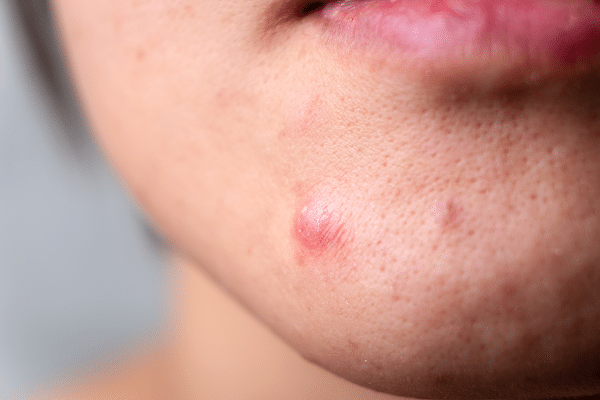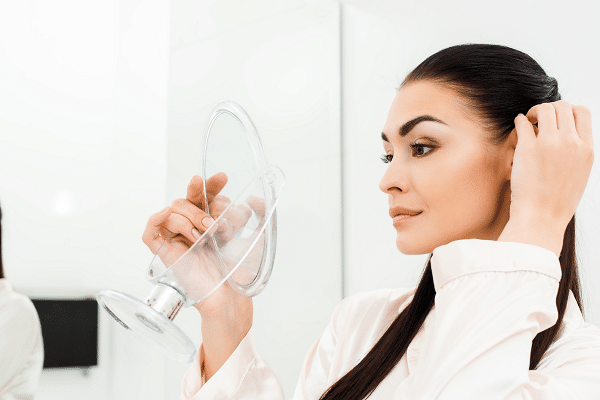The connection between what one consumes and the health and appearance of the skin is undeniable. The old adage “you are what you eat” carries significant weight when it comes to skin health. Various nutrients, vitamins, and minerals found in foods have a substantial impact on the skin’s condition, influencing factors like elasticity, hydration, and complexion. What one includes or excludes from the diet can manifest visibly, either contributing to a glowing, healthy appearance or causing issues such as acne, dullness, and premature aging. Gaining an understanding of this relationship is vital for anyone looking to improve their skin health through diet.
Can Help Prevent Acne

Acne is a common skin condition influenced significantly by diet. Consuming a balanced diet that restricts excessive sugar can prevent the insulin spikes that often lead to sebum overproduction. This overproduction is one of the primary causes of acne, as the sebum can clog pores, leading to breakouts. Foods high in sugar and simple carbohydrates cause rapid spikes and subsequent crashes in blood sugar levels, stimulating a surge of insulin that triggers sebum production. Maintaining a balanced diet that focuses on complex carbohydrates and fibers can help manage blood sugar levels, potentially preventing acne.
Another crucial dietary component for preventing acne is Omega-3 fatty acids. These essential fatty acids, commonly found in fish, flaxseeds, and walnuts, have potent anti-inflammatory properties. Research has shown that inflammation plays a substantial role in the development of acne. By reducing inflammation, Omega-3s can help maintain clear skin and reduce the risk of acne and other skin conditions. Consuming a diet rich in Omega-3s can provide the body with the resources it needs to keep inflammation under control.
Hydrates Skin

Hydrated skin is healthy skin. Consuming water-rich fruits and vegetables such as cucumbers, watermelons, oranges, and strawberries can significantly boost skin hydration. These foods not only provide the body with much-needed water but also deliver a host of vital vitamins and minerals. These nutrients help maintain the skin’s natural barrier, which plays a critical role in preventing water loss and keeping the skin hydrated and plump.
On the other hand, certain beverages like those containing caffeine and alcohol can dehydrate the skin. They act as diuretics, increasing fluid loss and potentially leaving the skin looking dull and dry. Moderation in consuming these beverages is key, and drinking plenty of water can help counteract their dehydrating effects. By focusing on hydration from both inside and out, one can support skin health and promote a more radiant complexion.
Delays Skin Aging

The impact of diet on the aging process of the skin is profound. Antioxidant-rich foods like berries, nuts, and green vegetables work tirelessly to combat free radicals that expedite aging. These free radicals, often a result of environmental pollutants and sun exposure, damage skin cells and weaken collagen structures. By consuming a diet rich in antioxidants, one can effectively neutralize these harmful free radicals, preserving the skin’s youthful appearance and preventing premature aging.
Collagen, a vital protein responsible for the skin’s elasticity and firmness, can be supported through specific dietary choices. Foods that boost collagen production include bone broth, citrus fruits, and leafy greens, all rich in vitamins and amino acids essential for collagen synthesis. By incorporating these into the diet, one can ensure that the skin remains supple and resilient, reducing the appearance of fine lines and wrinkles.
Enhances Skin Glow

Attaining a natural, radiant glow is often a top skincare goal. One significant contributor to a luminous complexion is Vitamin C. Foods like oranges, strawberries, bell peppers, and kiwis are teeming with this essential vitamin, which plays a crucial role in brightening the skin and reducing hyperpigmentation. Moreover, Vitamin C supports collagen production, contributing further to a vibrant, youthful appearance.
Another secret to glowing skin lies in the consumption of healthy fats. Avocados, nuts, chia seeds, and olive oil contain essential fatty acids that nourish the skin from within. These fats help maintain the skin’s lipid barrier, which is crucial for retaining moisture and giving the skin a plump, dewy look. Including these nutrient-dense fats in the diet can significantly enhance skin health and provide a noticeable radiant glow.
Protects Against Sun Damage

Protection from harmful UV rays goes beyond just topical sunscreens; it starts on the plate. Foods high in carotenoids, like carrots, tomatoes, and sweet potatoes, offer a form of internal sun protection. While not a replacement for sunscreen, these foods can provide the skin with a natural SPF boost, defending against the detrimental effects of UV rays and minimizing the chances of sunburn.
Green tea is another dietary powerhouse when it comes to sun protection. Packed with catechins, these compounds have been shown to prevent sunburn and long-term UV damage. Regular consumption of green tea not only hydrates the body but also equips the skin with antioxidants that fight against free radicals caused by sun exposure. Hence, it’s a dual-action remedy: providing hydration and UV protection simultaneously.
Helps In Skin Repair

The body’s natural repair mechanisms work incessantly, mending damage and regenerating new cells, with the skin being no exception. Protein-rich foods, such as chicken, tofu, lentils, and beans, play a pivotal role in this process. Protein provides the body with amino acids, the building blocks essential for cell repair and regeneration. Consuming a diet that meets daily protein needs ensures that the skin has the resources to heal effectively from damage, be it from minor abrasions or more severe issues.
Another key nutrient in the skin repair process is zinc. Foods rich in zinc, like beef, spinach, and pumpkin seeds, play a vital role in skin development and maintaining its health. Zinc is known to accelerate wound healing, reduce inflammation, and play a role in the production of new cells. By integrating zinc-rich foods into the diet, one can bolster the skin’s defense and repair mechanisms, ensuring it remains resilient and vibrant.
Enhances Skin Detoxification

Skin, being the body’s largest organ, plays a pivotal role in detoxification. To support this process, it’s essential to consume high-fiber foods like whole grains, fruits, and vegetables. Fiber aids the body’s natural detoxification process, helping eliminate toxins that might otherwise manifest on the skin as blemishes or dullness. A diet abundant in fiber ensures that the body’s waste-elimination process is efficient, indirectly benefiting the skin.
Hydration is another critical element for skin detoxification. By drinking ample water and sipping on detoxifying herbal teas, such as dandelion or green tea, toxins can be flushed out more effectively. Hydration ensures that the skin remains plump, reducing the appearance of pores and allowing the skin to function optimally in its detoxifying role. Drinking fluids also aids in balancing the skin’s pH, leading to a clearer, brighter complexion.
The Bottom Line
The intricate relationship between diet and skin health is one that cannot be ignored. As the external reflection of internal well-being, the skin offers insights into nutritional balances and imbalances. Through mindful food choices—prioritizing nutrient-dense, antioxidant-rich, and hydrating options—one can significantly influence the health and appearance of the skin. In essence, nourishing the body from within is a fundamental step towards achieving radiant, healthy skin, emphasizing the notion that true beauty is more than skin deep.


